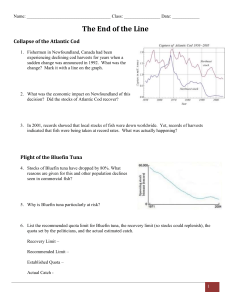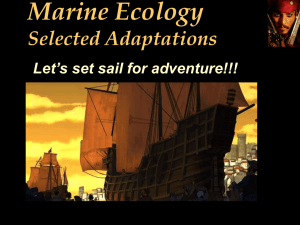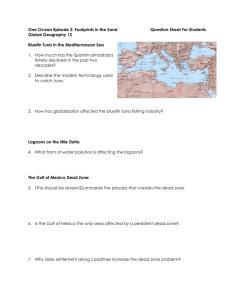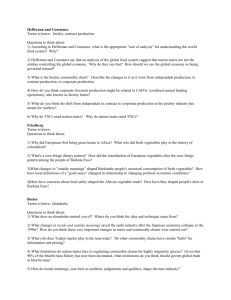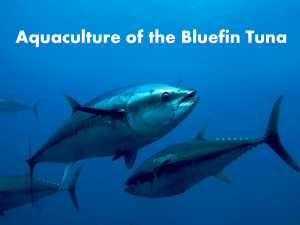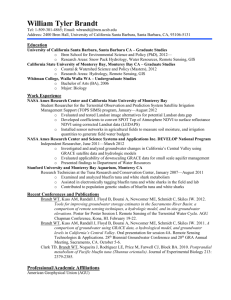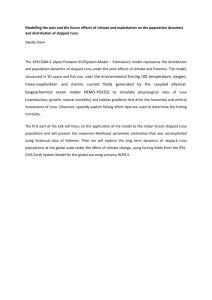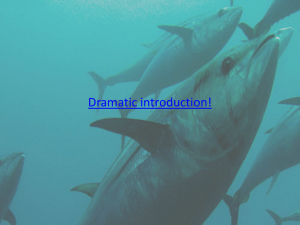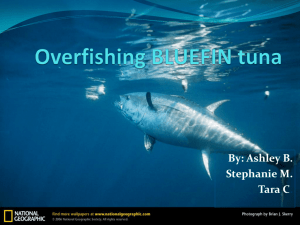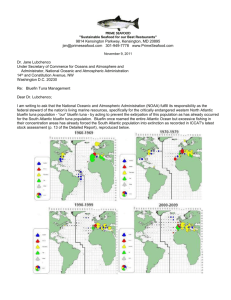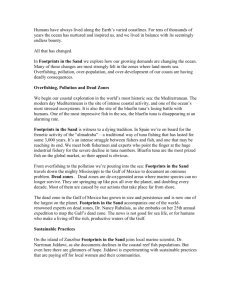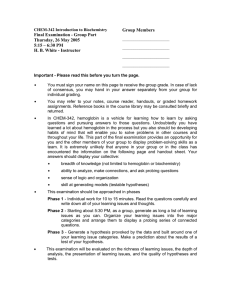The Tragedy of the Commons
advertisement
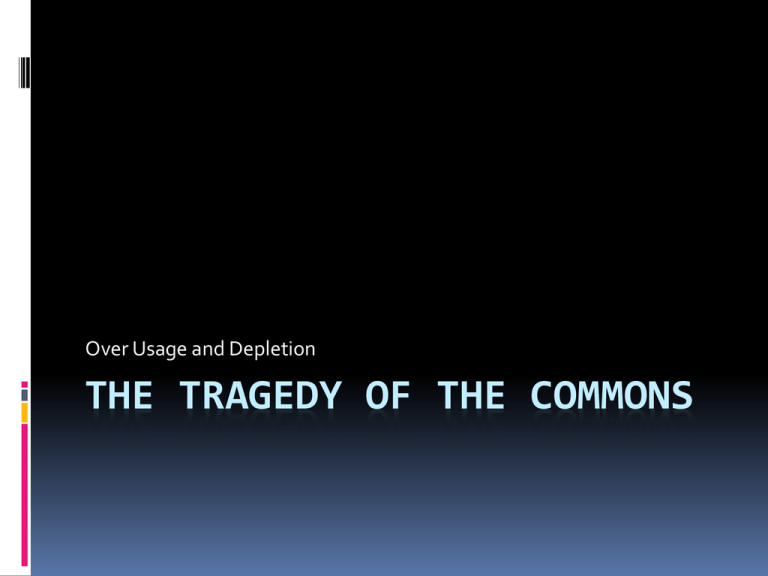
Over Usage and Depletion THE TRAGEDY OF THE COMMONS What is “The Tragedy”? Describes how shared environmental resources are overused and eventually depleted People tend to act in their own self-interest for the greatest short-term personal gain but don’t think about long-term consequences Ten examples #1: Grand Banks Fisheries Grand Banks are fishing grounds off the coast of Newfoundland 1960s: described as a region home to an endless supply of cod fish advances in technology allowed huge catches of cod fish populations dropped 1990s, cod populations were so low that the Grand Banks fishing industry collapsed Too late for regulation and management; the cod stocks had been irreparably damaged. Grand Banks Fisheries Enough until the end of time? #2: Bluefin Tuna Current bluefin tuna populations in the Atlantic Ocean and Mediterranean face a similar fate fishermen realized tuna populations were in danger, and an International Convention for the Conservation of Atlantic Tuna (ICCAT) formed in an effort to manage fish harvesting more sustainably. not every nation is a member of the ICCAT or follows the convention’s guidelines Bluefin tuna have already been fished to extinction in the Black Sea and Caspian Sea, and perhaps the Atlantic bluefin tuna will follow. Bluefin Tuna $1,760,000 #3: Passenger pigeons #4: Ocean garbage gyres #5: Earth’s atmosphere Air pollution and greenhouse gases from various industries and transportation increasingly damage this valuable, shared resource Multiple nations (but not Canada) recognize that everyone has an interest in preserving this common resource for the future and have agreed to look beyond short-term gain and immediate self-interest to a sustainable future It’s called the Kyoto Protocol #6: Gulf of Mexico dead zone Fertilizers from farms flow downriver and eventually enter the Gulf of Mexico They create conditions for a dead zone — a region of the ecosystem that can’t support any living creatures. Gulf of Mexico dead zone #7: Traffic congestion Public roads are an excellent example of common property shared by many people Roads jam up and slow down overall traffic movement, filling the air with pollutants from idling cars Public roads into toll roads creates a different scenario. Drivers may consider a less-direct route or choose to drive to work at a different time Traffic congestion #8: Groundwater in L.A. Landowners around Los Angeles each have rights to use the water pumped up from wells on their land residents drew so much water from the aquifer that the supply reached levels that left the aquifer vulnerable to saltwater intrusion Residents face potential water shortages and possible destruction of the renewable water resource #9: Unregulated logging Tropical rainforests are a common resource that everyone in the world benefits from. In some parts of the world, vast expanses of dense rainforests aren’t governed or owned Result is that unregulated logging irreparably damages acres of rainforest each year. Unregulated logging #10: Population growth the common resource is not people but the planet Earth and all its shared resources Just by existing, each person uses water, air, land, and food resources; splitting those resources among 7 billion people (and counting) tends to stretch them pretty thin
